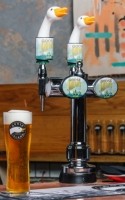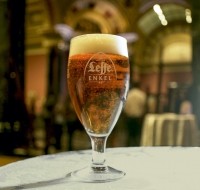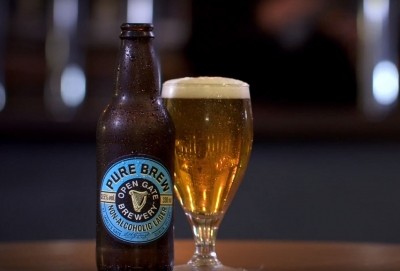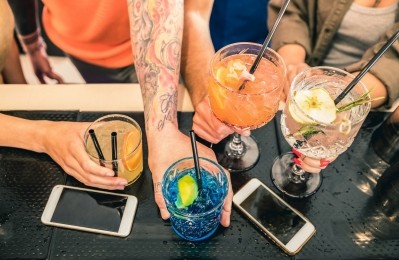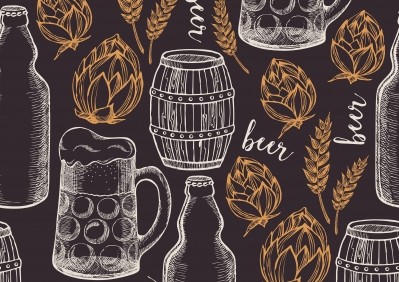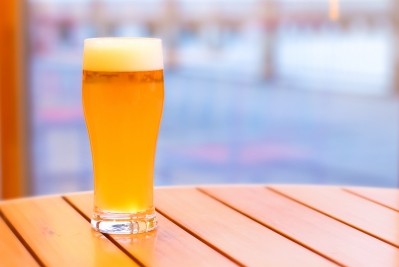AB InBev: new low-alcohol beer launches
Low ABV beer category can be boosted by highlighting consumer choice
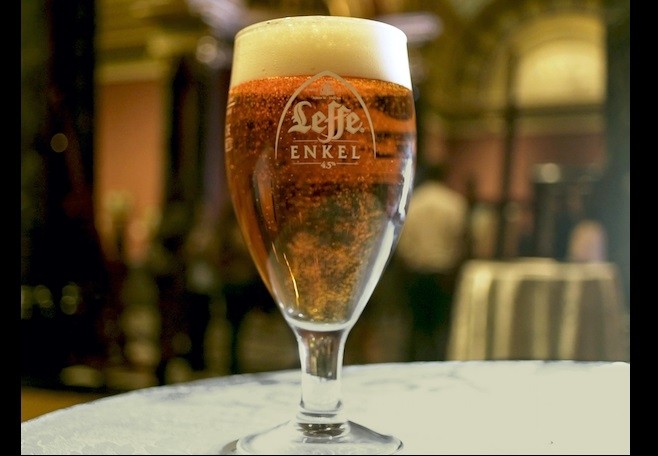
AB InBev has pledged that lower and non-alcoholic beer will make up a fifth of global beer volumes by 2025. While the pledge has been made as part of its Global Smart Drinking Goals, the brewer also notes the change in consumer tastes and increased interest in lower alcohol or alcohol-free drinks.
In the UK, Chicago brewer Goose Island has launched Goose Midway, a new session IPA, this month. With an ABV of 4.1% it is its lowest strength beer released in the UK to date. Meanwhile, Belgian abbey beer Leffe has launched Leffe Enkel, available to the UK on-trade with an ABV of 4.5%.
Ensuring that consumers are guided towards the perfect beer for them will help match consumer demand with the increasing variety of low ABV beers on the market, says Katie Simpson, European marketing manager, speciality and craft beer at AB InBev.
Rise in lower ABV beers
Consumers are showing increased interest in quality over quantity; evidenced by the craft movement and premiumization trend. Meanwhile, interest in health and wellness means more people are moving away from a binge drinking culture and are trying to reduce their alcohol consumption: a trend that has accelerated in the last year.
What is low ABV?
AB InBev considers beers under 3.5% ABV as low-alcohol; while in craft this tends to be 3.5% - 4.5%. “And this is the segment that is seeing the most growth within craft beer (3.5%-4.5%), showing that UK craft consumers are now more open to lower-alcohol beers too,” says Simpson.
In fact, 41% of UK drinkers say they’re actively trying to drink less, compared to 33% a year ago, according to The Grocer / Harris Interactive. People aged between 25 and 44 years old are the most likely to be moderating their alcohol consumption.
Among other factors, these trends open the door for lower strength beers, Simpson told BeverageDaily.
“There are many factors at play from type of drinking occasion, an increase in health conscious millennials, through to the wider availability of flavorful and diverse beers at lower ABVs,” she said.
“The market and consumer demand is telling us is that beer drinkers are increasingly longing for better quality and less quantity and it’s no wonder that this is happening, the high (and fast-growing) standard of UK craft beer means that drinkers are really enjoying their beers and want to know what they are talking about in the office when the next regular ‘craft ale discussion’ comes around.”
Research from AB InBev shows that nearly a third of Brits (32%) have tried alcohol-free beer. Among consumers over 20, 39% are happy to try no-alcohol or low-alcohol products, rising to 48% among 18-19 year olds.
The importance of ‘beer know-how’ in matching consumers and products
So how can the lower-ABV category make the most of this demand and firmly establish its presence and become a common choice for consumers? Simpson says that telling consumers about the types of beers that are now available is key to the future of the category.
“There is a place for all styles of beer, but education from brewers and pub or store staff, to help consumers learn about different styles and strengths of beer, is a really important factor for the success of this category,” she said.
“One of our main goals this year is to bring knowledge to beer fans and to attract new consumers to the sector. Recent research revealed that 74% of UK drinkers are likely to try a new beer if staff know how to talk about it, and 36% are drawn to pubs, bars and even particular retailers if they think that staff are knowledgeable.
“This shows that beer ‘know-how’ is a vital ingredient for the success of sales and to help beer-lovers make the right beer choices. It makes sense for companies to explore avenues like our BPET programme [Beer Professional Education and Training] - so that staff can embrace the world of craft beer, this in turn will benefit their beer sales and ensure that consumers get the right information and are guided towards the perfect beer for them.”
The key to the future will be to follow where market growth is coming from and provide what consumers want, said Simpson.
“The market is forever changing but the priority for us is listening to our beer fans and ensuring that we continue to provide them with innovative, interesting and tasty beers.”
New launches in the UK: Goose Island and Leffe
Goose Midway
A session IPA showcasing American hops, with an ABV of 4.1%.
Boasts a ‘bright hop aroma with tropical and mandarin notes and medium-to-low bitterness; pairs well with lighter dishes like grilled chicken, Caesar salad, soft rind cheeses, grilled fish.’
‘While designed to be a perfect choice for all beer enthusiasts, it is an especially good introduction to an IPA beer style, due to its well-balanced, more approachable flavor profile and lower ABV.’
Leffe Enkel
A ‘light bodied, rich flavored abbey beer, that retains the classic Leffe characteristics of an easy-drinking connoisseur beer.
Makes an ‘ideal mid-week drink, for those beer drinkers who are looking for a rich-tasting drinking experience whilst staying in control’.
“Its refreshing fruit and bitter spices pair excellently with grilled pork sausages, medjool dates and honey, as well as semi-hard cheeses such as Gouda and Manchego.”
